- Home
- Tim Lebbon
The Fire Wolves
The Fire Wolves Read online
TIM LEBBON
—
Hellboy created by Mike Mignola
—
Dark Horse Books®
Milwaukie
Other Hellboy books from Dark Horse Books
—
Hellboy:
Seed of Destruction (with John Byrne)
Wake the Devil
The Chained Coffin and Others
The Right Hand of Doom
Conqueror Worm
Strange Places
The Troll Witch and Others
Darkness Calls
Hellboy: Weird Tales Vol. 1
Hellboy: Weird Tales Vol. 2
Hellboy Junior
Hellboy: Odd Jobs
Hellboy: Odder Jobs
Hellboy: Oddest Jobs
Hellboy: Emerald Hell
Hellboy II: The Golden Army
Hellboy: The All-Seeing Eye
—
B.P.R.D.:
Hollow Earth & Other Stories
The Soul of Venice & Other Stories
Plague of Frogs
The Dead
The Black Flame
The Universal Machine
The Garden of Souls
Killing Ground
The Warning
1946
—
The Art of Hellboy
The Hellboy Companion
Hellboy: The Art of the Movie
Hellboy II: The Golden Army—The Art of the Movie
HELLBOY™: THE FIRE WOLVES © 2009 by Mike Mignola.
Hellboy™, Abe Sapien™, Liz Sherman™, and all other characters are ™ Mike Mignola. No portion of this publication may be reproduced or transmitted, in any form or by any means, without the express written permission of the copyright holders. Names, characters, places, and incidents featured in this publication either are the product of the author’s imagination or are used fictitiously. Any resemblance to actual persons (living or dead), events, institutions, or locales, without satiric intent, is coincidental. Dark Horse Books ® and the Dark Horse logo are registered trademarks of Dark Horse Comics, Inc. All rights reserved.
Book design by Heidi Whitcomb
Cover design by Lia Ribacchi
Cover illustration by Duncan Fegredo
Front cover color by Dave Stewart
Published by Dark Horse Books
A division of Dark Horse Comics
10956 SE Main Street
Milwaukie, OR 97222
darkhorse.com
Library of Congress Cataloging-in-Publication Data
Lebbon, Tim.
Hellboy : the fire wolves / Tim Lebbon. -- 1st Dark Horse Books ed.
p. cm.
ISBN 978-1-59582-204-8
1. Hellboy (Fictitious character : Mignola)--Fiction. I. Title. II. Title: Fire wolves.
PS3612.E245H45 2009
813’.6--dc22
2008051086
First Dark Horse Books Edition: April 2009
ISBN 978-1-59582-204-8
ePub ISBN 978-1-62115-441-9
Printed in the United States of America
10 9 8 7 6 5 4 3 2 1
This one’s for my good friend Chris Golden,
who always goes above and beyond.
—
And a big thanks to Mike Mignola
for letting me play in his world.
“There was a fearful black cloud riven by darting tongues
of flame, which then dissolved into long plumes of fire.
We could hear the shrieks of women, the screams of children.
Most were convinced that this must be the end of the world.”
—Pliny the Younger, AD 79
PROLOGUE
—
AD 79
Pompeii
—
As the ashes landed in her hair, tears fell from her eyes. The old woman had already lived many lifetimes of suffering and grief, and she had started to believe that tears were only for younger people with much life still ahead of them. But she had been called once again by the spirits of light and the echoes of the silver cloud, urged up from her aged slouch to confront dark forces, and she felt that she could allow herself such a luxury.
She coughed, spluttering as a flake of gritty ash landed on her tongue. The air was heavy. Her lungs struggled, her vision swam, and soon the screams she had been hearing from outside for most of the day would start to fade away.
She had failed.
Dropping the shard of colored ceramic, the old woman put her hands to her face once again and wept. The tears cleared her eyes of dust, and that let her see the image that was forming clearer than before. But that sight only brought more tears, and she cursed the Fates who tortured her so.
Something landed on the roof of the small dwelling, sending shudders through the walls. Dust fell around her. The air, already heavy with ash and choking gases, felt thicker that ever, as if the space she occupied was shrinking. The woman—the old demon hunter, wraith catcher, and spell wielder—held her breath, waiting for the roof to cave in.
And it must, she thought. That thing will not wish to leave even a trace of itself here. No memories, because almost everyone will be dead. No songs or legends, because they arise from twisted memories, and the dead don’t remember. And if a few survivors do see it stalking the streets of Pompeii this night, it will burn out their eyes and char their brains in their heads.
But the roof held, and she continued in her work.
She had never considered herself an artist, and it seemed ironic in the extreme that as the affluent town of Pompeii suffered beneath the wrath of Vesuvius, so she was channelling all her efforts into creating something such as this. The mosaic was simple but effective, and her vague hope was that it would warn those who came to rescue the town in the days to come. Perhaps they would find this and realize its significance, and then . . .
And then? She shook her head, trying to shed the doubts she carried, but like splinters of shattered ceramic peppering weak flesh, they only buried themselves deeper. If I cannot defeat this thing, then who can? I know so much about it, and yet I don’t have time to . . . Sighing, the old woman used a cutting tool to etch out another thin sliver of shiny orange stone. Always oranges for this thing, and yellows, and reds. Lively colors for something so deadly.
Resting in her palm, the stone burned like fire.
—
Pompeii was dying, and thousands would die with it. The woman had tried warning them, but no one would listen, and now the city reaped the crop sown by its ignorance. Ash floated on the air, scalding to the touch, smothering. It landed all across Pompeii, quickly growing deeper, and the roofs of weaker structures collapsed under the weight, crushing to death anyone hiding inside. Poisonous gas drifted through the streets. Chunks of pumice rained down—some small as a finger, others the size of a horse—killing those fleeing the ash and gas, battering buildings, exploding as they struck and adding to the dust in the heavy air. If there had ever been a scene of damnation upon Earth, this was surely it.
Behind Pompeii, Vesuvius vented its fury at the darkened skies. A column of ash, smoke and gas rose five miles high from the ragged crater blown in its summit, and in that billowing mass lightning thrashed like something alive, and the glow of unthinkable explosions blinked down across the city.
Day was night, and before this long night was through, alive would be dead.
In the city, fires erupted in a hundred different places. With no one to fight them, they roared out of control, consuming whole buildings, streets and districts. Some were killed by the flames, but perhaps they were the lucky ones; in truth, luck was not looking down upon Pompeii this day.
Many had already fled, and even during the height of the eruption, a few more man
aged to escape. But thousands were dead, and many more were soon to join them. Survival on their mind, panic leading them, terrified citizens could hide from the ash, dodge the falling rocks, and perhaps even cover their mouths against the poisonous gases that flowed through the streets like groups of hunters stalking prey.
But there was worse yet to come.
And where most fires burned in place, perhaps spreading slightly at the whim of wind or the closeness of neighboring buildings, there was another. This fire moved rapidly through the city. It darted from cover to cover, leaving seeds of itself behind to blossom and bloom and add to the conflagration. When it realized that the furious breath of Vesuvius was closing on the city, it broke cover and poured headlong through the streets. Some people saw it and died from shock. Others drew in a breath to scream, and in doing so sucked flame into their lungs to roast them from the inside out. It ran, leaping across buildings and venting a fiery, ecstatic howl over that doomed place.
The old woman had met this thing three times over the past day, and three times she had failed to stop its progress. Charms and wards protected her skin, though her flesh and blood boiled from the anguish of seeing it pass her by. She had fought it as hard as she could, learning in the process. She had used every means at her disposal. But its victory was as inevitable as what followed it down the mountainside.
From the slopes of Vesuvius, the first of two pyroclastic flows poured in, ready to bury what was left of Pompeii and remove it from the world.
—
She could feel the ground shaking, and she knew the end was near.
It would be fleeing now. It would be gone, out into the world where it did not belong, and in its wake it left ten thousand sad stories that should have never been told.
She had failed, yes. It had been much stronger than she had feared, and perhaps pride had hobbled her, preventing her from calling for help she knew she needed. But she had to dry her tears and do her utmost to make amends. This was one service she could yet perform, and time was running short.
The old woman carved, scored and cracked the fine mosaics, setting them in the wet plaster on the wall before her, slowly building a picture that chilled her to the core. When they came to Pompeii in the days, weeks or months that followed, someone would find her in here and see what she had done. They would view the image. And she prayed to the spirits of light that they would understand.
The roar from outside became unbearable. She could no longer breathe, yet she worked on. Her skin had blistered and bubbled, her eyes had shrivelled in her skull from the heat, but she could still see with other sight. She placed the final splinter of stone and sat back, considering what she had done.
It was simple, but it told the whole story—the volcano and the fire wolf.
Curling into a fetal position on the floor as though preparing to be born again, the old demon hunter waited to be buried alive.
CHAPTER 1
—
Amalfi
—
Carlotta Esposito was beautiful, intelligent, almost eighteen years old, and terrified that she was going to die. She felt eyes upon her everywhere she went. She sensed the attention of dangerous people focused on the back of her neck when she walked past the cathedral steps, along the sea front, or up the gently sloping coastal road towards the old Saracen watchtower that now housed a hotel restaurant. She knew they were dangerous because their stares burned her skin. Sometimes she would turn to try and catch whoever was watching, but they were clever. If they had been strangers, they would have been just other faces in the crowd. But she feared that they were not strangers at all, and if that were the case, then they were hiding well.
Not strangers at all, she thought, though a family member or friend who would conspire to see her dead was surely less known to her than someone on another continent, another world.
She had left the family home, La Casa Fredda, early that morning. Wandering the busy streets of Amalfi, she had met with friends for coffee, then bought an ice cream and sat on her own down at the harbor, watching a tourist boat set sail for Capri. The ice cream had dripped onto her blouse, but she did not mind. She needed to appear casual.
Out in the bay, an expensive-looking yacht was moored, all dark timber and bright white sails. She watched someone in swimming shorts jump from the deck and start to swim in toward the harbor, his head occasionally lost to the gentle swells. She stood to get a better view. He paused halfway between the boat and harbor, treading water as though examining the ancient buildings along the coastline. Then he turned and swam back to the yacht. He looked fit, tanned and strong as he climbed the ladder, and someone was there to hand him a towel.
A rich sailor, Carlotta thought. That’s what I need. One that won’t be put off from swimming all the way in, and who will take me back with him to his boat. It was a romantic dream born of fear and desperation, but it was also something that she knew could never happen. She was an Esposito, one of the oldest families in Amalfi, and with money and social standing came certain responsibilities.
If she ran away, she would do her family great harm. But that didn’t mean she could not leave for just a little while.
She popped the end of the ice cream cone into her mouth and stood, darting across the road to one of the framed tourist maps of the town. You are here, the words above the little red arrow said, but its certainty did nothing to make her feel any safer. She looked past her reflection, trying to scan the shop fronts and pavement behind her for anyone who might be watching. Is it just me? she thought. She had told no one about her fears—how could she?—but now that the time had come to change that, she was more nervous than she’d ever been before.
She knew for certain that she was right about the curse. What she didn’t know was how much danger revealing her knowledge would put her in. Would they call her a fool? Would they accuse her of tainting her family name? After all, not every young Esposito vanished without a trace.
She saw the Naples bus turn around the bend of the Luna Convento Hotel, making its way carefully down the coastal road towards the harbor.
Carlotta sighed and ran a hand through her hair. She was sweating, a mixture of trepidation and excitement at what she was about to do increasing her heartbeat. It was a fine, hot Amalfi day, and she pulled her blouse away from her damp skin and turned casually around.
At a pavement café fifty yards along the front, a man lifted a newspaper in front of his face.
Carlotta dashed across the road, ignoring the admiring glances from a couple of rich, pale tourists in a Mercedes convertible. She darted between parked cars in the small parking circle, glancing back at the café and seeing the man still apparently reading his paper. Him, yes, she thought, but she knew that there would be others.
She looked at the Mercedes and caught the passenger’s eye. He smiled. She glanced away again, wishing she had the nerve to flirt her way into their car and away to Naples.
The bus approached, horns honked, and the Mercedes powered away from the harbor.
The man in the café lowered the newspaper and looked around, frowning. She had not seen him before, but that meant little. When it came to reach, she knew that when the occasion called for it, the Esposito Elders had very long arms.
Carlotta ducked down between two parked cars, watching through the windows of one as the bus drew closer. More horns honked, and she heard the metallic scrape of a parked car losing its wing mirror. So it went in Amalfi.
“Have you lost something?” an old woman asked. She was leaning on a cane, swaying slightly as she stood before one of the parked cars.
“Bus fare,” Carlotta said. “Dropped it.”
“Well hurry, girl, because it’s here. I’ll ask the driver to wait for you.”
Carlotta grinned, knowing that she had a dazzling smile. “Thank you.”
The woman smiled back, perhaps thinking of her own lost youth, and when she moved on Carlotta stood and followed her onto the bus. It was full of locals going from
one town to the next and tourists exploring the scenic coastal route with wide eyes and pink faces. Several men looked at her as she swayed along the bus, but the only eyes she felt, like a burn mark on her skin, were those of the man in the café. As she took her seat and looked through the window, he glanced away again, pretending to fan his face with the newspaper. He was already talking into his mobile phone.
Carlotta took out her own phone and switched it off. She could do without the Elders trying to coax her back. Stay here with us, Adamo would say. If you really think there’s danger, the best place to be is with your family. She could already see his calm, demeaning smile . . .
But this was her time. And though it would only last for the rest of the day before she knew she had to return, she was determined to make the most of it.
Carlotta closed her eyes, and thought of her cousin who had escaped.
—
Naples
—
Franca Esposito waited for the bus that was bringing a blast from her past. She had kept the family name, true, but releasing herself from its grasp had been the making of her. It had been difficult—they had not wished her to leave, and the Elders had expressly forbidden it—but though controlling and sometimes even dominating, the Espositos were a good family. She’d upset them by coming here to Naples, and for a time relations between her and the rest of the Espositos had been strained. But none of them would ever see a family member shut out entirely, and slowly but surely things had started to mellow. And her parents, though still disapproving, had remained in contact.
The Elders, however, still regarded what she had done as betrayal. But she had always said that they clung to the past, and Franca was ever the modern girl.
She’d been quite confident that most of the family would come around to accepting what she had done. And if they had cut her off completely, she was just as certain that she would have returned to Amalfi. It had been a daring risk, and it had paid off. She loved her life now, mostly because it was all hers.
Franca stubbed out her cigarette and lit another. It was part nervousness, and partly because it was rare that she sat at a pavement café doing nothing. Usually she was studying, preparing research materials for a local dig or, lately, spending more and more time away from her studies, and staying in bed with Alex instead. Damn him for making her fall for a hot American, but fall she had, and she was plummeting further every day.

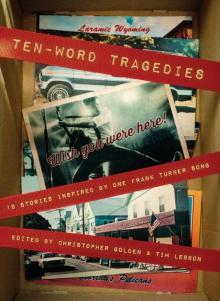 Ten-Word Tragedies
Ten-Word Tragedies Predator: Incursion
Predator: Incursion Relics--The Edge
Relics--The Edge Firefly
Firefly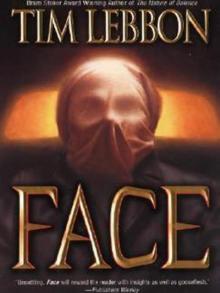 Face
Face Generations
Generations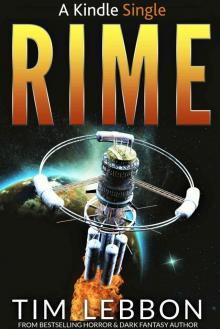 RIME (Kindle Single)
RIME (Kindle Single) Fallen
Fallen London Eye tc-1
London Eye tc-1 Kong: Skull Island
Kong: Skull Island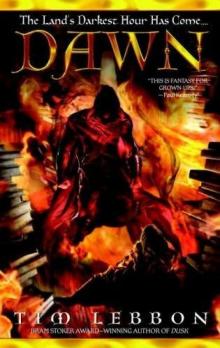 Dawn n-2
Dawn n-2 Into the Void: Star Wars (Dawn of the Jedi)
Into the Void: Star Wars (Dawn of the Jedi) The Everlasting
The Everlasting London Eye: 1 (Toxic City)
London Eye: 1 (Toxic City) Dusk: a dark fantasy novel (A Noreela novel)
Dusk: a dark fantasy novel (A Noreela novel) Coldbrook
Coldbrook Alien
Alien Dusk
Dusk The Cabin in the Woods
The Cabin in the Woods The Heretic Land
The Heretic Land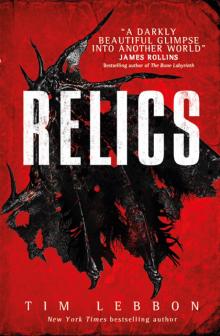 Relics
Relics The Nature of Balance
The Nature of Balance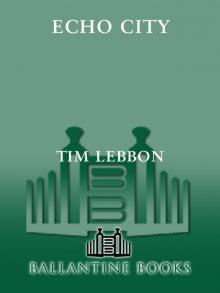 Echo City
Echo City Tim Lebbon - Fears Unnamed
Tim Lebbon - Fears Unnamed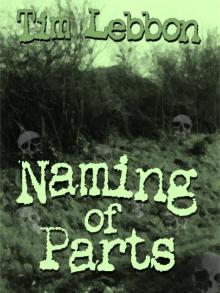 Naming of Parts
Naming of Parts Alien--Invasion
Alien--Invasion Vale of Blood Roses
Vale of Blood Roses Berserk
Berserk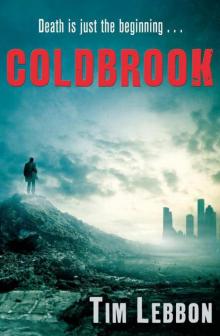 Coldbrook (Hammer)
Coldbrook (Hammer) Contagion tc-3
Contagion tc-3 Reaper's Legacy: Book Two (Toxic City)
Reaper's Legacy: Book Two (Toxic City)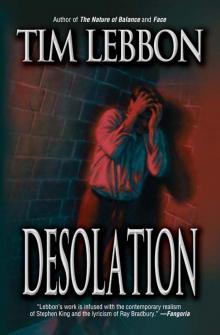 Desolation
Desolation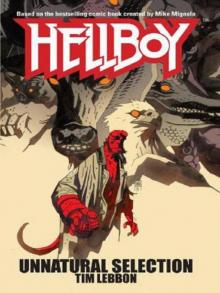 Unnatural Selection
Unnatural Selection Predator - Incursion
Predator - Incursion London Eye
London Eye Contagion (Toxic City Book Three)
Contagion (Toxic City Book Three) The Silence
The Silence The Thief of Broken Toys
The Thief of Broken Toys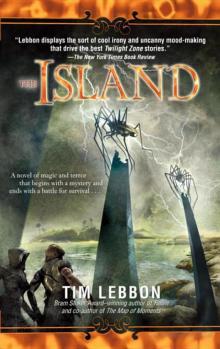 Tales of Noreela 04: The Island
Tales of Noreela 04: The Island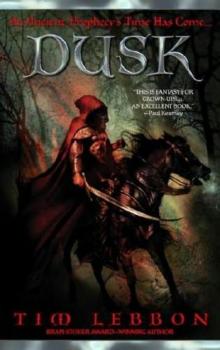 Dusk n-1
Dusk n-1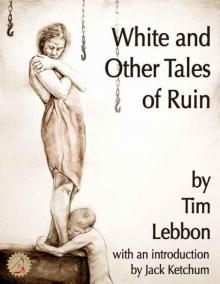 White and Other Tales of Ruin
White and Other Tales of Ruin A Whisper of Southern Lights
A Whisper of Southern Lights Until She Sleeps
Until She Sleeps Relics--The Folded Land
Relics--The Folded Land Reaper's Legacy tc-2
Reaper's Legacy tc-2 Alien: Out of the Shadows
Alien: Out of the Shadows Pieces of Hate
Pieces of Hate X-Files: Trust No One
X-Files: Trust No One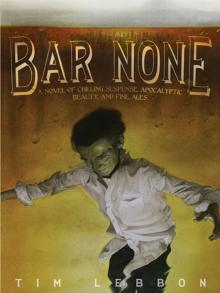 Bar None
Bar None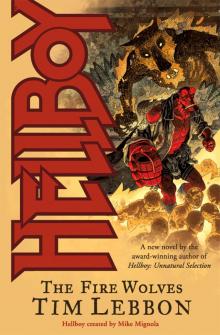 The Fire Wolves
The Fire Wolves